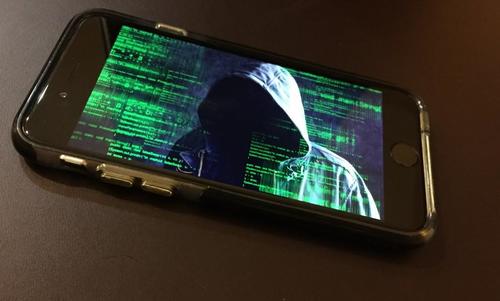Oxford Secretly Used Millions Of Patients' Cell Phone Data For Vaccine 'Mobility Study'
In a flagrant violation of patients' medical privacy that has just come to light, the British government has admitted to collecting and using smartphone data to analyze their activity without disclosing it as part of a vaccination study.
A report by the Independent Scientific Pandemic Insights Group on Behaviours claimed researchers from the University of Oxford discreetly used data from mobile phones as part of their study into how vaccination affected the lifestyles' of patients. The report was first cited by the Telegraph.
SPI-B advises the Scientific Advisory Group for Emergencies, better known as SAGE, which is responsible for advising the government and has played a key role in the UK's battle against COVID. Oxford, which helped develop a vaccine alongside British-Swedish pharmaceutical firm AstraZeneca, was responsible for collecting the data.
The massive study involved scientists digging through cell phone records for 10% of the British population in February to single out a group of roughly 4,250 who were monitored more closely for insights about vaccination's impact on individual lifestyle.
Researchers performed "various robustness checks" sorted by age, and used the data to measure "distance from home to vaccination point" for the typical patient, among other things. They used the data to determine that the "average pre-vaccination mobility increased by 218 meters [sic]."
A government spokesperson insisted the data had been properly anonymized and that it was collected "at cell tower rather than individual level" and had been properly "anonymized." Researchers also received approval from Oxford. Still, privacy group Big Brother Watch says the findings are "deeply chilling and extremely damaging to public trust in medical confidentiality."
"Between looming Covid passports and vaccine phone surveillance, this Government is turning Britain into a Big Brother state under the cover of COVID," the group added.
The unwitting participants were given “a new token of identification” every month to preserve their anonymity, and the only basic demographic data that was shared with scientists was age.
"It is not GPS tracing data which is commonly used by some large commercial companies for targeted advertising," the source said.
The study was allowed by the UK’s privacy watchdog, the Information Commissioner's Office, allowed the use of phone data in fighting the coronavirus. "Public bodies may require additional collection and sharing of personal data to protect against serious threats to public health," the ICO spokesperson said.
Pro-data privacy campaigners have repeatedly warned about contact-tracing and other medical apps that were developed during the pandemic and their potential to result in lasting data abuses. Last month, Google and Apple refused to make an update for the NHS contact-tracing app available for download on their app stores, a clear sign that the UK government was willing to cross a line that even the US tech giants which have been put through hell by the US Congress over concerns about privacy and potential abuses, were uncomfortable with.
https://ift.tt/3fMyX8u
from ZeroHedge News https://ift.tt/3fMyX8u
via IFTTT





0 comments
Post a Comment